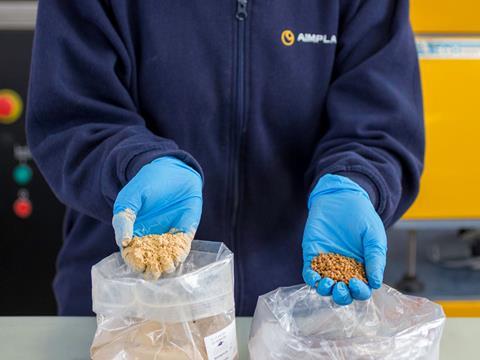
A new collaborative project is using waste from the olive industry to create a bioplastic which is reportedly both biodegradable and compostable.
Spain is the world’s leading olive oil producer and therefore generates considerable waste during the stoning process. This waste is currently incinerated for power generation. However, AIMPLAS, the Plastics Technology Centre, and OLIPE, a cooperative of olive oil producers, have implemented the GO-OLIVA project to find a high value-added application for this waste by producing a new packaging material for oil packaging items.
The result is Oliplast, a plastic compound material made with materials from renewable sources, namely, a filler or reinforcement from olive oil and a thermoplastic material. AIMPLAS also says that the new product is biodegradable and compostable. Oliplast can be processed by extrusion and injection moulding to manufacture new products such as trays and plates to hold bottles, as well as caps for packaging containers for cosmetic creams made with olive oil.
Work done to date has involved selecting raw materials and developing an olive stone that can be used to obtain the new material. The next step will be to perform a behavioural study so the material can be validated for transformation processes. Finally, an environmental study will be carried out to determine the material’s compostability.













